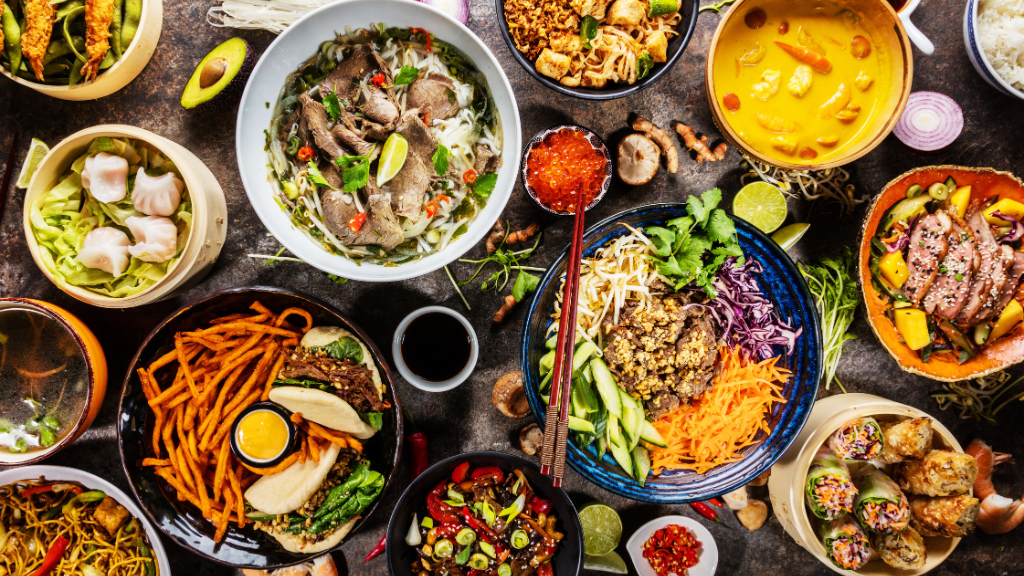
Food is more than sustenance; it’s a universal language that speaks to our cultural heritage, traditions, and identities. In recent years, food tourism has emerged as a popular trend, enticing travelers to embark on culinary adventures around the world. From street food stalls in bustling markets to Michelin-starred restaurants, exploring cuisines offers a sensory journey that delights the palate and enriches the soul. In this article, we’ll delve into the world of food tourism, celebrating the diverse flavors and culinary traditions found across the globe.
The Rise of Food Tourism
Food has always been an integral part of travel, but in recent years, it has taken center stage as a primary motivator for tourism. Travelers are increasingly seeking authentic culinary experiences that allow them to immerse themselves in the local culture and flavors of a destination. Whether it’s sampling street food in Bangkok, savoring pasta in Rome, or indulging in sushi in Tokyo, food tourism offers a gateway to understanding the heart and soul of a place through its cuisine.
Exploring Culinary Diversity
One of the most exciting aspects of food tourism is the opportunity to explore the rich tapestry of global cuisines. From spicy curries in India to savory tagines in Morocco, each region offers its own unique flavors, ingredients, and cooking techniques that reflect its cultural heritage and history. Food tourism allows travelers to embark on a culinary journey around the world, tasting their way through a kaleidoscope of flavors and aromas.
Street Food Adventures
Some of the best culinary experiences can be found in the bustling markets and street food stalls of cities around the world. Street food is the epitome of authenticity, offering a glimpse into the everyday lives of locals and their culinary traditions. Whether it’s pad thai in Bangkok, tacos al pastor in Mexico City, or falafel in Istanbul, street food is a delicious and affordable way to experience the flavors of a destination.
Gourmet Experiences
For those with a more refined palate, food tourism also encompasses gourmet dining experiences at high-end restaurants and eateries. Michelin-starred establishments, celebrity chef restaurants, and gastronomic festivals offer opportunities to indulge in exquisite meals crafted by culinary masters. From molecular gastronomy to farm-to-table dining, gourmet experiences push the boundaries of creativity and innovation, creating unforgettable culinary memories.
Cooking Classes and Culinary Workshops
Food tourism isn’t just about eating; it’s also about learning and hands-on experiences. Cooking classes and culinary workshops allow travelers to roll up their sleeves and learn the secrets of local cuisine from expert chefs and home cooks. Whether it’s making fresh pasta in Italy, mastering the art of sushi in Japan, or learning the intricacies of Thai curry paste, cooking classes provide a deeper understanding of the culinary traditions and techniques of a destination.
Ethical and Sustainable Dining
In addition to savoring delicious food, food tourism also encompasses ethical and sustainable dining practices. Travelers are increasingly conscious of the environmental and social impact of their food choices and seek out restaurants and food experiences that prioritize sustainability, local sourcing, and fair trade practices. From farm-to-table restaurants to eco-friendly food tours, ethical dining experiences allow travelers to indulge their passion for food while supporting communities and preserving the planet.
Conclusion
Food tourism offers a tantalizing journey through the flavors, aromas, and traditions of cultures around the world. Whether it’s sampling street food in bustling markets, indulging in gourmet dining experiences, or learning the art of local cuisine through cooking classes, food tourism provides endless opportunities for culinary exploration and discovery. By embracing the diverse flavors and culinary traditions of different regions, travelers can embark on a global gastronomic journey that delights the senses and nourishes the soul.


